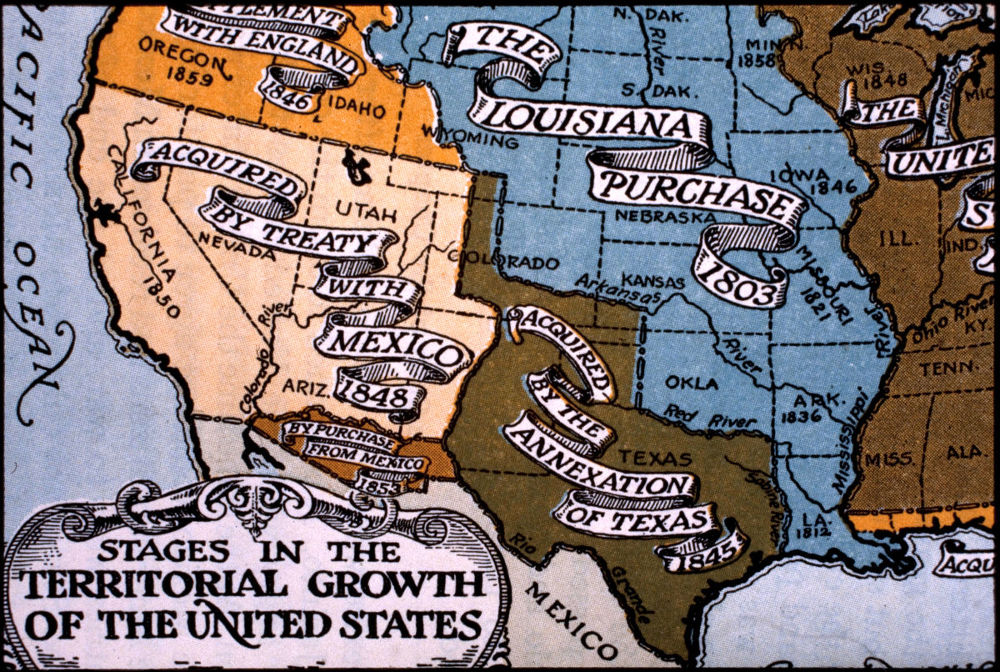Reconstructed Roman world map, Orbis Terra, circa 20 A.D., as commissioned by Marcus Vipsanius Agrippa.
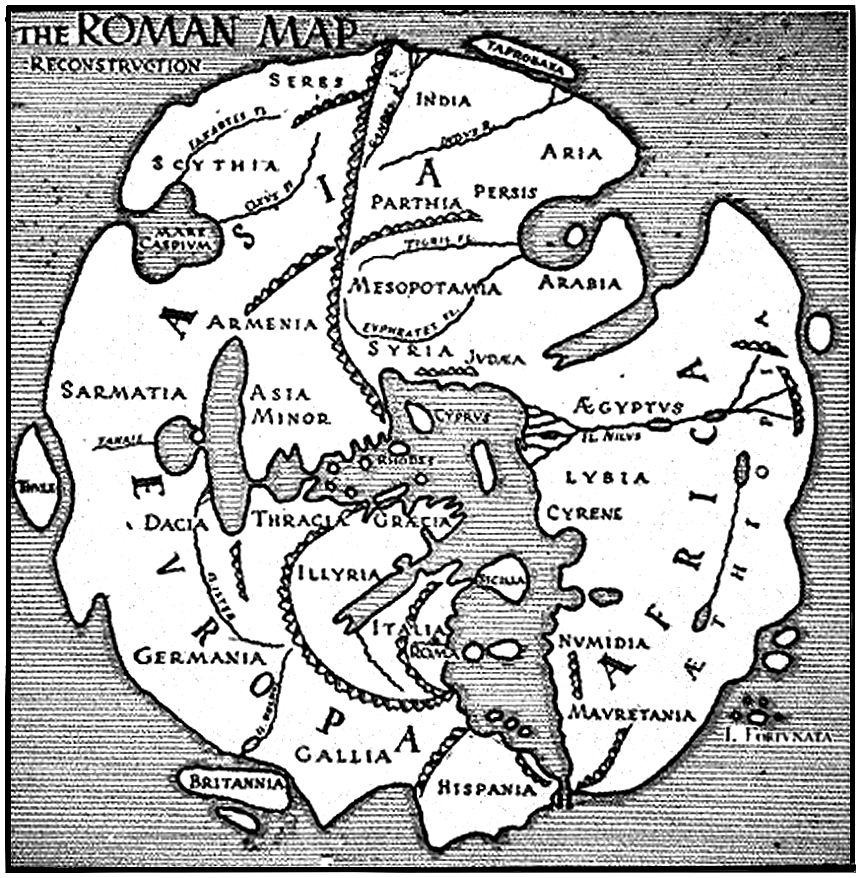
Category: History
Pocket Guide to North Africa, 1943
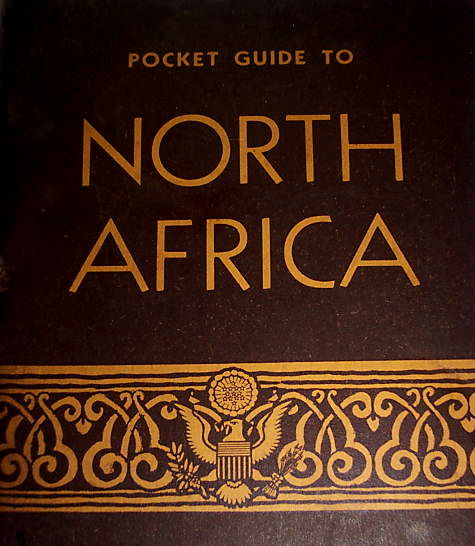 After the close of the First World War, one of the great strategists of Europe predicted that the next great war would be won in North Africa. He foresaw such a rise in air power as would make the Mediterranean Sea virtually a defile for all shipping. If their enemies were to come into complete possession of the Mediterranean shores, an almost insupportable strain would be put upon the nations dependent on sea power. On the other hand, if the North African coast could be held by
After the close of the First World War, one of the great strategists of Europe predicted that the next great war would be won in North Africa. He foresaw such a rise in air power as would make the Mediterranean Sea virtually a defile for all shipping. If their enemies were to come into complete possession of the Mediterranean shores, an almost insupportable strain would be put upon the nations dependent on sea power. On the other hand, if the North African coast could be held by
the sea-power nations — Great Britain and the United States — its air and sea bases would become the spring-board to the reconquest of Europe and the final defeat of
the forces dominating that continent.
THREE YEARS OF STRUGGLE
FOR more than three years, events have sustained this prophecy, and the armed forces of the United Nations and of the Axis have been locked in a tremendous struggle for North Africa. One campaign has followed another across its desert spaces. None was finally successful. For a time it seemed as if the whole of the Mediterranean and the land which surrounded it would be lost to our
side…
KCCO, 1939
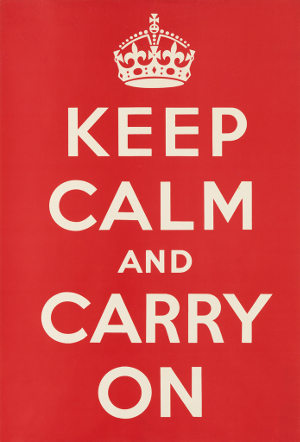 When Britain formally declaring war on Germany on September 3, 1939, the newly re-formed British Ministry of Information immediately began working on a giant poster publicity campaign to prepare the British populace for what the ministry feared would be an “appalling series of shocks, resulting in shattered nerves, a lack of confidence in ultimate success, and therefore a lack of will to work for victory” (Three Posters). The posters were intended as “general reassurance material” (ibid.). Three slogans were chosen and put into production on broadsides with white text against boldly colored backgrounds. Instead of a photograph or an illustration, each poster bore a depiction of the crown of King George VI at the top as an indication that the messages came from the King himself. The first two of these posters, “Freedom is in Peril / Defend it With All Your Might,” and “Your Courage Your Cheerfulness Your Resolution Will Bring Us Victory,” were distributed and posted around Britain in late September and October, 1939. The third, and now most famous, of these slogans was kept back in anticipation of a truly horrific incident, such as the invasion of Britain by German forces or a severe air raid. As it turned out, the first eight months after the British and French declared war on Germany (September 1939 – May 1940) proved to be largely uneventful for both the military and civilians. This time, now referred to as the “Phoney War,” was a period in which none of the Allied forces engaged the enemy in any serious land offensive. To paper the country with posters encouraging the populace to defend freedom and to project optimism, while keeping their stiff upper lips firmly in place when nothing was happening, turned out to be something of a public relations disaster. The public did not respond well to the first two posters. “The wording of ‘Your Courage . . . will bring us victory’ was criticised. There was some evidence the combination of ‘your’ and ‘us’ ‘suggested to many people that they were being encouraged to work for someone else,’ with the ‘your’ referring to the civilian, the ‘us’ to the Government. ‘Freedom is in Peril’ was also deemed ineffective, blamed on ‘the abstractness of the words, not one of which had any popular appeal'” (ibid.). The Times had described the posters as “egregious and unnecessary exhortations,” “insipid and patronising invocations,” which were unneeded and wasteful of funds (ibid.). Since the expected, immediate German attack never materialized, and because the earlier posters had been met with such derision, “Keep Calm and Carry On” was never posted and was kept in storage for years. After the war, the remainders were scrapped for their pulp. Contemporary reports cite that almost two and half million copies of the poster were printed. An HMSO (His Majesty’s Stationery Office)
When Britain formally declaring war on Germany on September 3, 1939, the newly re-formed British Ministry of Information immediately began working on a giant poster publicity campaign to prepare the British populace for what the ministry feared would be an “appalling series of shocks, resulting in shattered nerves, a lack of confidence in ultimate success, and therefore a lack of will to work for victory” (Three Posters). The posters were intended as “general reassurance material” (ibid.). Three slogans were chosen and put into production on broadsides with white text against boldly colored backgrounds. Instead of a photograph or an illustration, each poster bore a depiction of the crown of King George VI at the top as an indication that the messages came from the King himself. The first two of these posters, “Freedom is in Peril / Defend it With All Your Might,” and “Your Courage Your Cheerfulness Your Resolution Will Bring Us Victory,” were distributed and posted around Britain in late September and October, 1939. The third, and now most famous, of these slogans was kept back in anticipation of a truly horrific incident, such as the invasion of Britain by German forces or a severe air raid. As it turned out, the first eight months after the British and French declared war on Germany (September 1939 – May 1940) proved to be largely uneventful for both the military and civilians. This time, now referred to as the “Phoney War,” was a period in which none of the Allied forces engaged the enemy in any serious land offensive. To paper the country with posters encouraging the populace to defend freedom and to project optimism, while keeping their stiff upper lips firmly in place when nothing was happening, turned out to be something of a public relations disaster. The public did not respond well to the first two posters. “The wording of ‘Your Courage . . . will bring us victory’ was criticised. There was some evidence the combination of ‘your’ and ‘us’ ‘suggested to many people that they were being encouraged to work for someone else,’ with the ‘your’ referring to the civilian, the ‘us’ to the Government. ‘Freedom is in Peril’ was also deemed ineffective, blamed on ‘the abstractness of the words, not one of which had any popular appeal'” (ibid.). The Times had described the posters as “egregious and unnecessary exhortations,” “insipid and patronising invocations,” which were unneeded and wasteful of funds (ibid.). Since the expected, immediate German attack never materialized, and because the earlier posters had been met with such derision, “Keep Calm and Carry On” was never posted and was kept in storage for years. After the war, the remainders were scrapped for their pulp. Contemporary reports cite that almost two and half million copies of the poster were printed. An HMSO (His Majesty’s Stationery Office)
via Swann Auction Galleries
Short Guide to Iraq, 1943
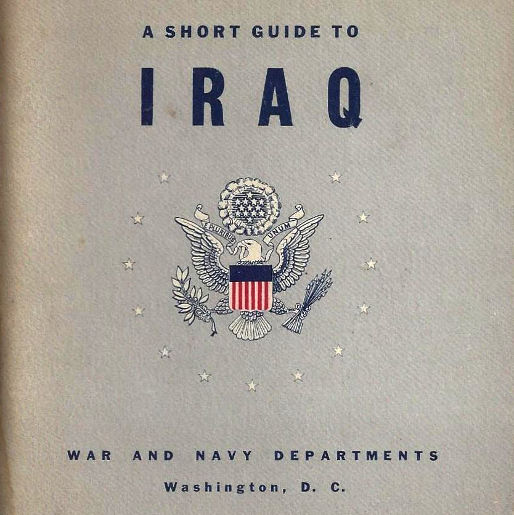 YOU HAVE been ordered to Iraq (i – RAHK) as part of the world-wide offensive to beat Hitler.
YOU HAVE been ordered to Iraq (i – RAHK) as part of the world-wide offensive to beat Hitler.
You will enter Iraq both as a soldier and as an individual, because on our side a man can be both a soldier and an individual. That is our strength–if we are smart enough to use it. It can be our weakness if we aren’t. As a soldier your duties are laid out for you. As an individual, it is what you do on your own that counts–and it may count for a lot more than you think.
American success or failure in Iraq may well depend on whether the Iraqis (as the people are called) like American soldiers or not. It may not be quite that simple. But then again it could.
How To Beat Hitler. Herr Hitler knows he’s licked if the peoples united against him stand their ground. So it is pretty obvious what he and his propaganda machine are trying to do. They’re trying to spread disunity and discontent among their opponents whenever and wherever they can.
So what’s the answer? That ought to be pretty obvious, too. One of your big jobs is to prevent Hitler’s agents from getting in their dirty work. The best way you can do this is by getting along with the Iraqis and making them your friends. And the best way to get along with any people is to understand them.
That is what this guide is for. To help you understand the people and the country so that you can do the best and quickest job of sending Hitler back where he came from.
And, secondly, so that you as a human being will get the most out of an experience few Americans have been lucky enough to have. Years from now you’ll be telling your children and maybe your grandchildren stories beginning “Now when I was in Baghdad —–.”
Prepared by Special Services Division, Army Service Forces, United States Army, 1943
Digitized by Central University Libraries, Southern Methodist University
Download Short Guide to Iraq (5MB)
Pocket Guide to China, 1943
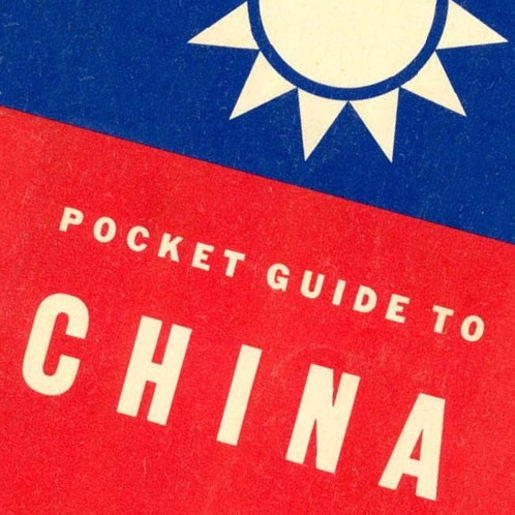 CHINA has been at war for 5 years with her enemy and ours — the Japanese. She has met heavy defeats and won important victories. She has suffered more than 5,000,000 casualties in those years of war. Yet, today, the free people of China are still fighting, still holding a better armed foe.
CHINA has been at war for 5 years with her enemy and ours — the Japanese. She has met heavy defeats and won important victories. She has suffered more than 5,000,000 casualties in those years of war. Yet, today, the free people of China are still fighting, still holding a better armed foe.
You and your outfit have been ordered to China to help this gallant ally. Your job, fighting side by side with the Chinese, is to rid that country of the Japanese. No American troops anywhere have a more important assignment.
Two problems face you right away. You don’t know the language and you don’t know the people. That makes it harder to be a guest in China than in a country like England or Australia.
Nobody expects you to learn a language as complex as Chinese, although the glossary at the end of this book will enable you to learn enough to get along. To understand a people is something else again. It takes a blend of curiosity, common sense, and courtesy. You might well adopt as your motto one of the many proverbs that guide the Chinese in their own conduct. They say …
“When you enter a neighborhood ask what is forbidden; when you enter a country ask what the customs are.”
It is the purpose of this guide to tell you about some of these customs. It will only take about 20 minutes to read, but, by helping you to understand China and the Chinese people, it can add interest to your stay in their country and help you to do a better job for America.
Prepared by Army Information Branch, Army Service Forces, United States Army, 1943
Digitized by Central University Libraries, Southern Methodist University
Robert Johnson
Pocket Guide to Japan, 1945 (updated PDF)
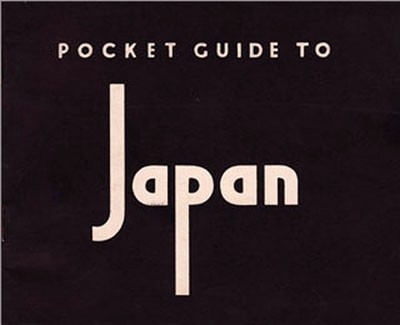 Japan deserves the concentrated attention of all our armed forces in the Pacific. One way to give the enemy attention is to find out all we can about him. This book is provided for that purpose. Other ways are by bombing his cities, sinking his shipping and destroying his factories. We are doing that. The best attention we can pay him is to invade his homeland. Every island we have taken has been a stepping stone to the Japanese Empire. In war it is not the first step but the last which count the most. On the sea and under the sea, through the air and across the land we will move together in the final step to victory.
Japan deserves the concentrated attention of all our armed forces in the Pacific. One way to give the enemy attention is to find out all we can about him. This book is provided for that purpose. Other ways are by bombing his cities, sinking his shipping and destroying his factories. We are doing that. The best attention we can pay him is to invade his homeland. Every island we have taken has been a stepping stone to the Japanese Empire. In war it is not the first step but the last which count the most. On the sea and under the sea, through the air and across the land we will move together in the final step to victory.
C.W. Nimitz,
Fleet Admiral, U.S. Navy.
(Reformatted from history.navy.mil, appears to be missing some illustrations)
Hitler’s Olympics, 1936
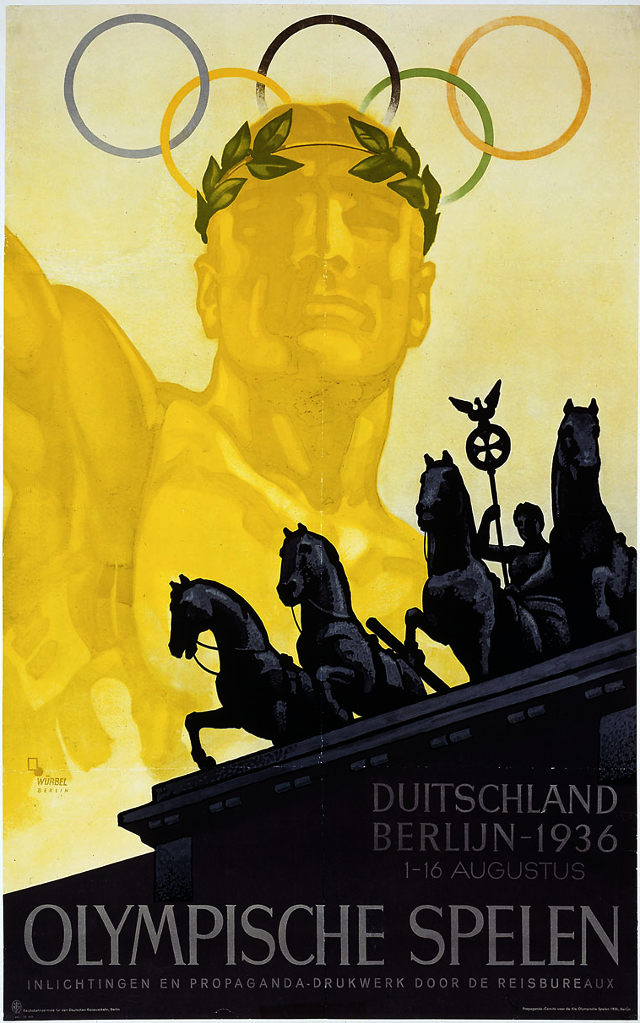
In 1931, the International Olympic Committee awarded the 1936 Summer Olympics to Berlin. The choice was meant to signal Germany’s return to the world community after defeat in World War I. Then Hitler & the Nazis rose to power… Continue reading “Hitler’s Olympics, 1936”
Post Cards
A couple of scans of the backs of postcards, for use as props or whatever you fancy. Unknown dates, probably 1907-1917.
Postage Rates for stamped cards and postcards (in cents) 1873-1951
05/12/1873 – 1¢ (see Note Below)
11/02/1917 – 2¢
07/01/1919 – 1¢
04/15/1925 – 1¢ for stamped cards; 2¢ for postcards
07/01/1928 – 1¢
01/01/1952 – 2¢
Continue reading “Post Cards”

